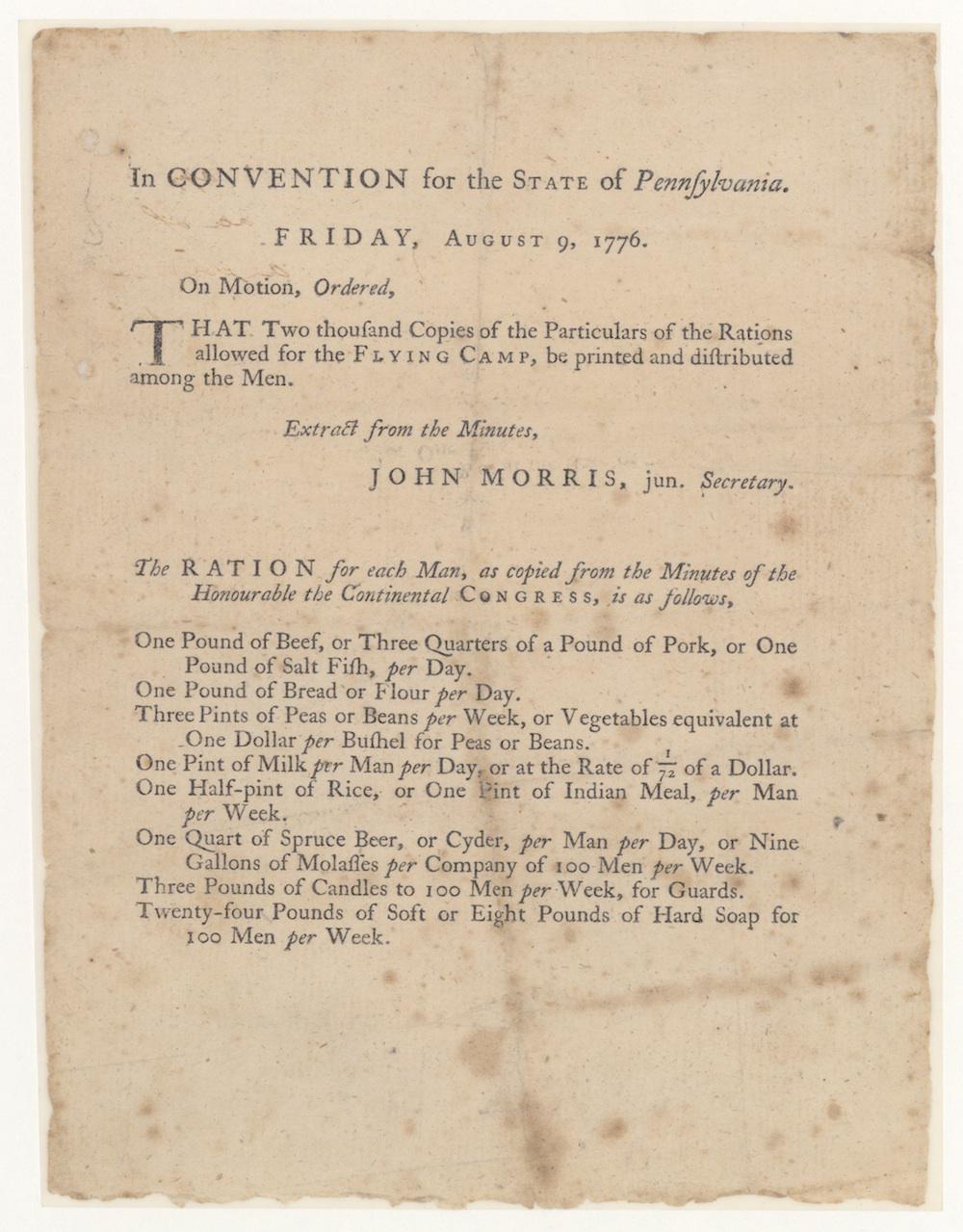The Vault is Slate’s history blog. Like us on Facebook, follow us on Twitter @slatevault, and find us on Tumblr. Find out more about what this space is all about here.
In August 1776, the Continental Congress ordered that 2,000 copies of this broadside, promising adequate rations, be printed and distributed to men who might be persuaded to sign up for George Washington’s experimental Flying Camp. This unit would (in concept) be a flexible group that could assist more established forces at stress points where the army needed reinforcement.
In comparison with this list of rations given troops in Boston in 1775, the Flying Camp bill of fare is reasonable. The Boston soldiers received a gill (a quarter-pint) of peas or beans a day, while those who signed up for the Flying Camp could expect three pints (or 12 gills) of peas, beans, or equivalent vegetables. Spruce beer, made from the tips of spruce branches, was provided to help combat scurvy (a function it may not have performed).
Historian Richard Baker of the U.S. Army Military History Institute writes that today the flying camp “would be considered a mobile rapid reserve force.” The camp was supposed to be made up of 10,000 men from three states (Pennsylvania, Maryland, and Delaware).
The promise put forth in this broadside wasn’t necessarily kept. Baker writes that Washington’s Flying Camp had many “logistical problems and supply shortages,” and had trouble holding onto its soldiers. When the term of service for the troops who’d signed up ended in December 1776, the idea was scrapped.
Later in the war, the whole Continental Army began to face challenges in providing the rations it promised. Meat was a special problem: without a native source of salt, the colonists had trouble preserving meat for long marches, and attempts to move beef on the hoof along with the army met with varying degrees of success. The bill of fare often narrowed to boiled beef and firecake, made by mixing flour and water and cooking it into biscuit over a campfire.

National Archives.